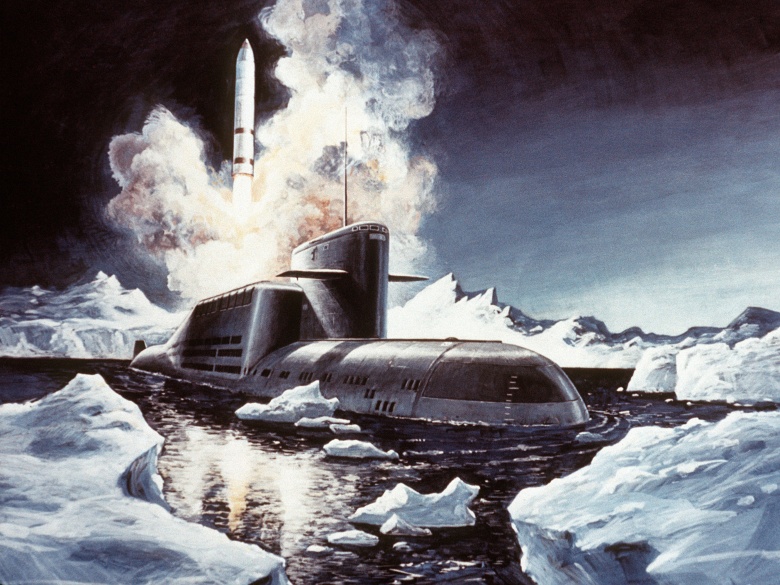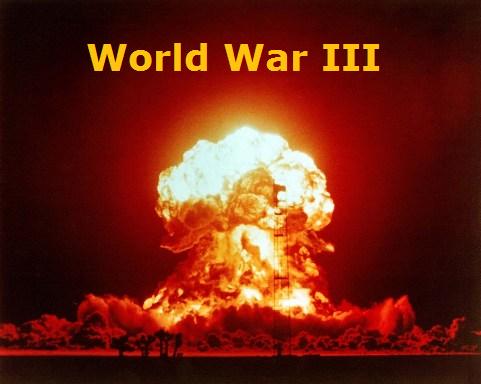|
|
How the Soviet Union and China Almost Started World War III?

中國與蘇聯如和啟動第三次世界大戰?
這樣一來美國的戰略分析家,企圖再從歷史中的事跡重新,找尋答案,應付蘇聯與中國的聯盟導引第3次世界大戰?
聽說美國的學者與軍方及政府,在中國農曆新年期間,於華盛頓的智庫座談會中,邀請各形各色的政治,經濟,國防,外交等學者,與會建言,採取共識,擬具意見,出招戰略,痛定思痛的對抗,中國與蘇聯的聯盟搞起第3次世界大戰?
本文的作者參加會議,有感於歷史的軌跡中,揣測未來中國與蘇聯結盟,共同啟動第3次世界大戰的可能性?
蘇聯這隻北極熊永不寂靜無聲,沉潛於北大西洋,無時不刻的威脅NATO及美國,但是又有中國強勢的崛起,令美國又愛又恨,不知如何是好,打也不是和也不是,只好繼續圍堵?
可是又能維持多久?
西方戰略家的分析報告早已明顯,指出中國的綜合國防武力,以戰略上而言,正是以中國古老智慧,哲學經典為首,兵來將擋,水來土掩,上兵伐謀,以柔克剛的不二法門,澈底的破解美國的圍堵策略,另一方面的戰術而言,中國軍事武器,日新月益的迎頭趕上,將於美國同質,同量的比對,也就是說中國將於2036-2040年左右時期,可以完全抗衡美國,在全球霸主的地位,因為屆時中國將有至少6個航空母艦戰鬥群,佈署於全球的重要戰略位置,分化美國的全球戰略佈署,尤其甚者軍事就是整體的太平洋,大西洋,印度洋,屆時美國不得不以,聯合演習為由,邀請中國參加各種國際軍演,以抗衡蘇聯在北大西洋的耀武揚威?
至於蘇聯,由來已久的經濟疲軟不振,無法再度的擴張國防武力,對抗美國,僅次於防衛NATO 即可?
有情報指出,英國這個勢力眼的老牌帝國主義的偽君子,會提供最新的西方NATO戰略計劃給予中國?
否則中國的西海艦隊(第4艦隊) 無法出現於,北大西洋,也無無法出現於英國北海與英國艦隊聯合軍演?
更有情報指出英國在2020時期,為要降低國防預算成本,不惜購買中國最055D新導向飛彈驅逐艦以及055E核子動力導向飛彈巡洋艦? 以換取中國西海艦隊進出北大西洋的航行權?
英國這種功利主義的外交策劃,著實的令美國頭痛,猷如201509時期,率先西方國家,加入以中國為首組織的AIIB,由此觀之英國也是尋找歷史的軌跡,重新與中國互為因果,的各取所需不是嗎? 那麼為什麼只有美國樂觀的我行我素?
難怪英國人嘲笑美國人,依舊以船堅炮厲的思維,對付中國這早已過時喇,不管用喇,言下之義,就是叫美國人看看英國的下場,如何與中國爭霸戰,好像須要5000年的歷史成績單,否則只有回家睡覺比較好.
衝突週後,兩個核大國之間的戰爭似乎指日可待。
美國人往往記住了古巴導彈危機在冷戰邊緣政策最危險的時刻。儘管出現了一些緊張的時刻,華盛頓和莫斯科解決了危機,只有美國的空軍飛行員少校魯道夫·安德森小死亡
七年後,1969年3月,中國人民解放軍(PLA)的隊伍士兵突擊上珍寶島蘇聯邊境哨所,造成數十人死亡和受傷的分數。這一事件使俄羅斯和中國戰爭的邊緣,這可能導致了使用核武器的衝突。但兩個星期的衝突後,衝突落後了。

美國至今依舊相信船監炮厲對付中國有效 ?
How the Soviet Union and China Almost Started World War III?
After weeks of clashes, war between the two nuclear powers seemed right around the corner.
Americans tend to remember the Cuban Missile Crisis as the most dangerous moment in Cold War brinksmanship. Despite some tense moments, Washington and Moscow resolved that crisis with only the death of U.S. Air Force pilot Maj. Rudolph Anderson Jr.
Seven years later, in March 1969, a contingent of People’s Liberation Army (PLA) soldiers raided a Soviet border outpost on Zhenbao Island, killing dozens and injuring scores. The incident brought Russia and China to the brink of war, a conflict that might have led to the use of nuclear weapons. But after two weeks of clashes, the conflict trailed off.
What if the brief 1969 conflict between China and the Soviet Union had escalated?
History:The incident on Zhenbao Island, where the initial ambush and the bulk of the fighting occurred, represented the nadir of Soviet-Chinese relations. Just ten years earlier, Beijing and Moscow had stood hand in hand as bulwarks of the Communist world. Struggles over ideology, leadership and resources, however, resulted in a sharp split between the allies that had global repercussions. The split exacerbated territorial disputes that had existed since Tsarist and Imperial times. The long, poorly demarcated border left numerous gray zones in which China and the USSR both claimed sovereignty.
After a few minor incidents, the Zhenbao Island incident drove tensions through the roof. A Soviet counterattack incurred serious casualties, as did a similar incident in Xinjiang in August. A consensus has emerged on both sides that the Chinese leadership prepared for and orchestrated the clash. Why would the Chinese provoke their much more powerful neighbor? And what if the Soviets had responded more aggressively to the Chinese provocation?In the immediate wake of the conflict, both the USSR and China prepared for war, with the Red Army redeploying to the Far East and the PLA going into full mobilization. The Soviets enjoyed an overwhelming technological advantage over China in 1969. However, Beijing had constructed the largest army in the world, much of which mustered within reach of the Sino-Soviet border. The Red Army, by contrast, concentrated its strength in Eastern Europe, where it could prepare for a conflict with NATO. Consequently, at the moment of the clash, the Chinese could plausibly claim conventional superiority along much of the border.
However, China’s manpower advantage didn’t mean that the PLA could sustain an offensive into the USSR. The Chinese lacked the logistics and airpower necessary to seize substantial amounts of Soviet territory. Moreover, the extremely long Sino-Soviet border gave the Soviets ample opportunity for response. With a NATO attack unlikely, the Soviets could have transferred substantial forces from Europe, attacking into Xinjiang and points west.
The most critical avenue of potential advance lay in Manchuria, where the Red Army had launched a devastating, lightning quick offensive in the waning days of World War II. Despite its size, the PLA of 1969 had no better hope of stopping such an offensive than the Kwantung Army had in 1945, and the loss of Manchuria would have proven devastating to China’s economic power and political legitimacy. In any case, Soviet airpower would have made short work of the Chinese air force, subjecting Chinese cities, communication centers and military bases to severe air attack.
After conquering Manchuria in 1945, the Soviets looted Japanese industry and left. A similar scenario might have ensued in 1969, but only if the Chinese leadership could bring itself to face reality. With the worst excesses of the Cultural Revolution in the very recent rear-view mirror, and competing factions still trying to ideologically out-radicalize one another, Moscow might have struggled to find a productive partner for peace negotiations. Continued Soviet advances might have resembled the Japanese main advance of 1937, albeit without the naval dominance that the Imperial Japanese Navy enjoyed. Expecting such attacks, the PLA might have withdrawn to the interior, conducting a scorched earth campaign along the way.
Nuclear? China tested its first nuclear device in 1964, theoretically giving Beijing an independent deterrent capability. However, their delivery systems left much to be desired—liquid-fueled missiles of uncertain reliability that required hours to prepare, and that could only remain on the launch pad for a limited amount of time. Moreover, Chinese missiles of the era lacked the range to strike vital Soviet targets in European Russia. China’s bomber force—consisting of an extremely limited number of Tu-4 (a Soviet copy of the U.S. B-29) and H-6 (a copy of the Soviet Tu-16 Badger)—would have fared very poorly against the USSR’s sophisticated air defense network.
The Soviets, on the other hand, were on the verge of achieving nuclear parity with the United States. The USSR had a modern, sophisticated arsenal of tactical and strategic nuclear weapons, easily capable of destroying China’s nuclear deterrent, its core military formations and its major cities. Sensitive to international opinion, the Soviet leadership would have resisted launching a full scale nuclear assault against China (U.S. and Chinese propaganda would have had a field day), but a limited strike against Chinese nuclear facilities, as well as tactical attacks on deployed Chinese forces might have seemed more reasonable. Much would have depended on how the Chinese reacted to defeats on the battlefield. If the Chinese leadership decided that they needed to “use or lose” their nuclear forces in anticipation of decisive Soviet victory, they could easily have incurred a preemptive Soviet attack. Given that Moscow viewed Beijing as abjectly insane, Moscow could very well have decided to eliminate the Chinese nuclear force before it became a problem.
U.S. Reaction:The United States reacted to the clashes with caution. While the border conflict reassured Washington that the Sino-Soviet split remained in effect, officials disagreed over the likelihood and consequences of broader conflict. Through various official and non-official channels, the Soviets probed U.S. attitudes towards China. Reputedly, the United States reacted negatively to Soviet overtures in 1969 about a joint attack on Chinese nuclear facilities. However, even if Washington did not want to see China burn, it would not likely have engaged in any serious, affirmative effort to protect Beijing from Moscow’s wrath.
What Comes Next? A decade before, Dwight Eisenhower had outlined the Soviet Union’s biggest obstacle in a war with China: what to do after you win. The Soviets had neither the capacity, nor the interest, in governing another continent-sized territory, especially one that would likely have included masses of disaffected resisters. And the United States, husbanding a “legitimate” government on Formosa, would eagerly have supported a variety of resistance elements against a Soviet occupation. Indeed, if a rump Beijing had survived the war, the United States might still have considered “unleashing Chiang,” in an effort to restore parts of China to the Western column.
The most likely outcome of war would have been short Chinese success, followed by a sharp, destructive Soviet rebuke. Such an outcome would have served to drive Beijing even more fully into the arms of the United States, which is likely one reason that the Soviets decided not to risk it.

|